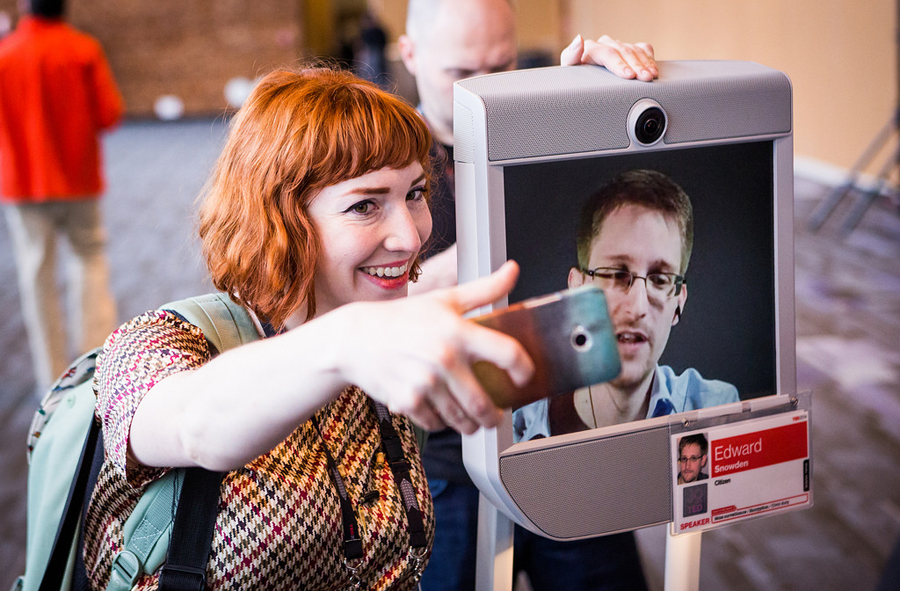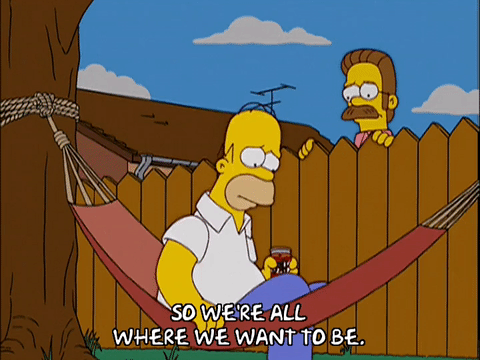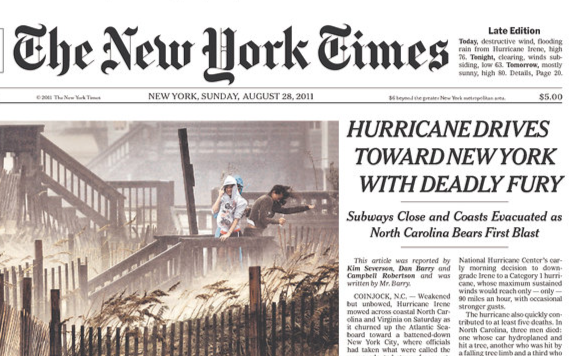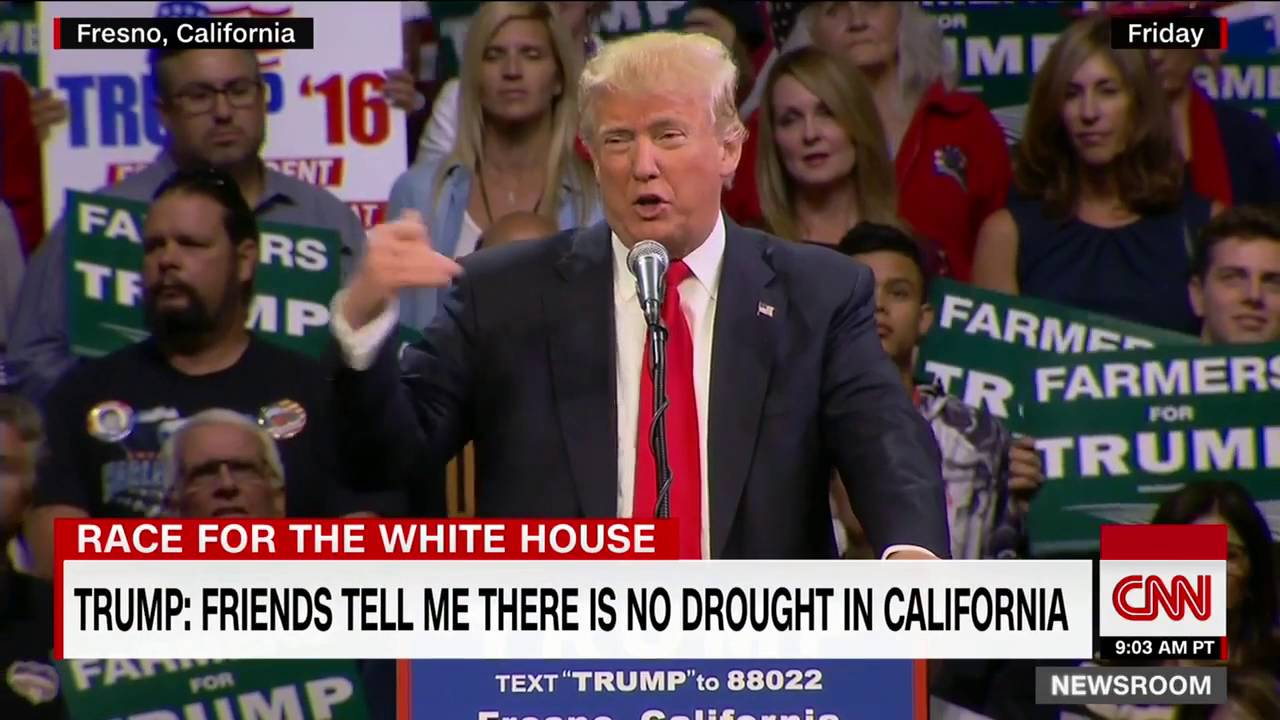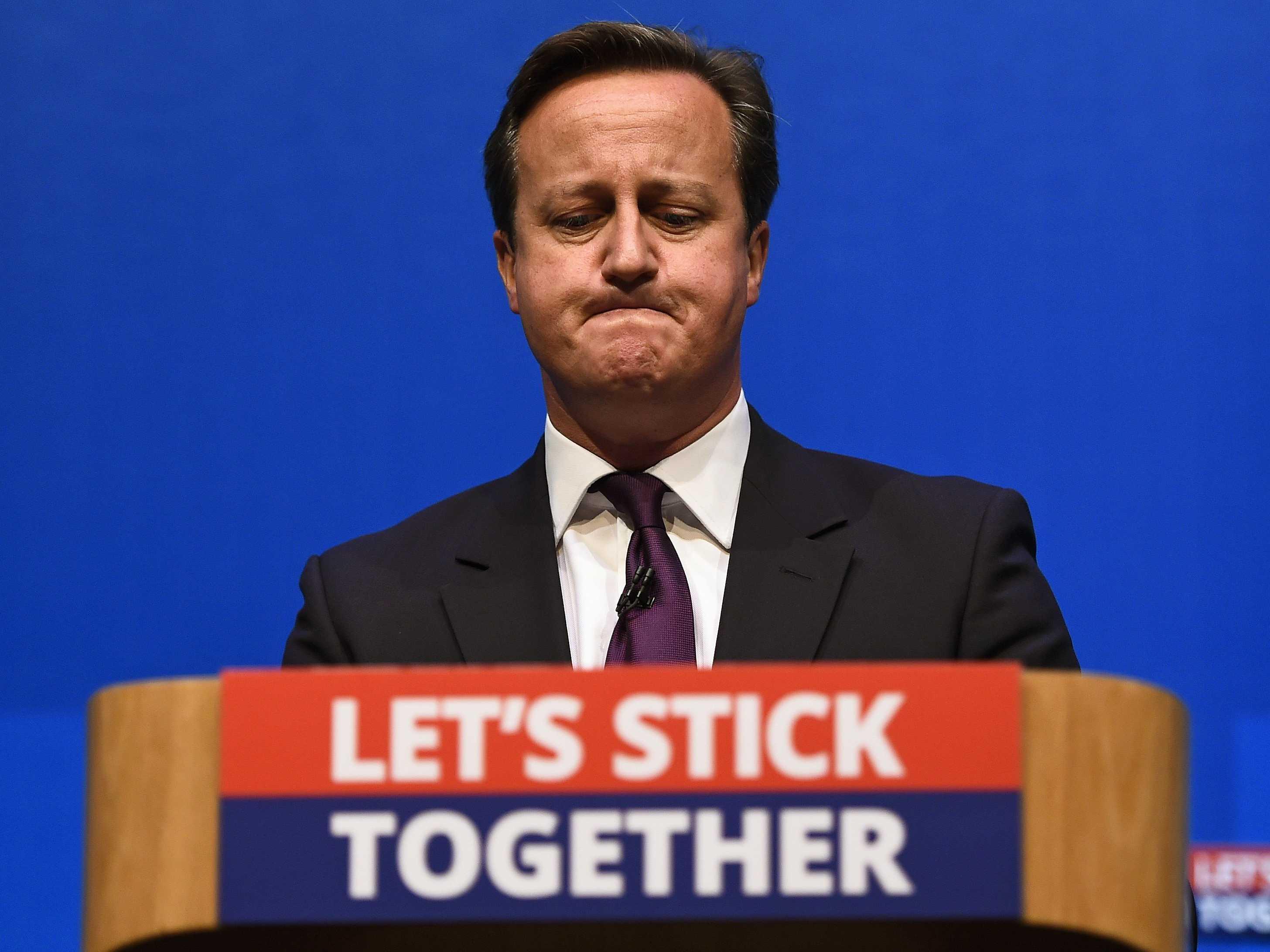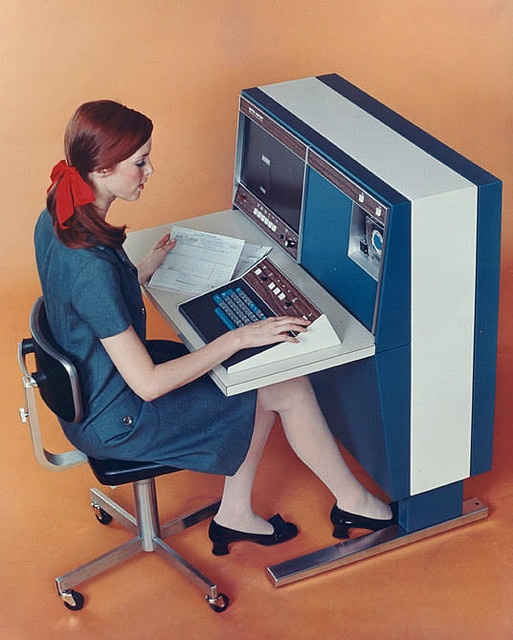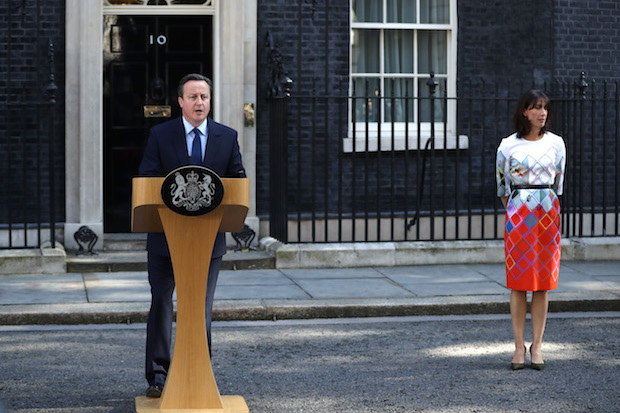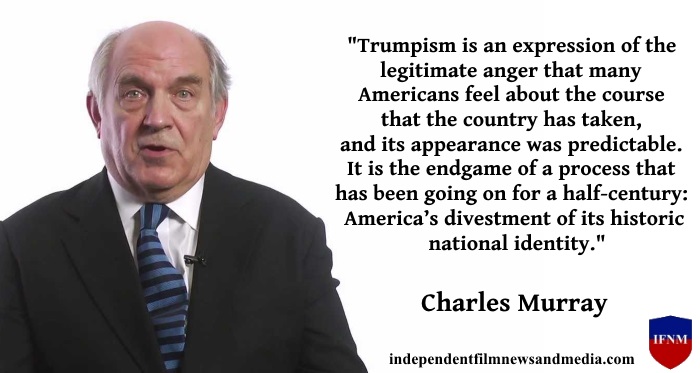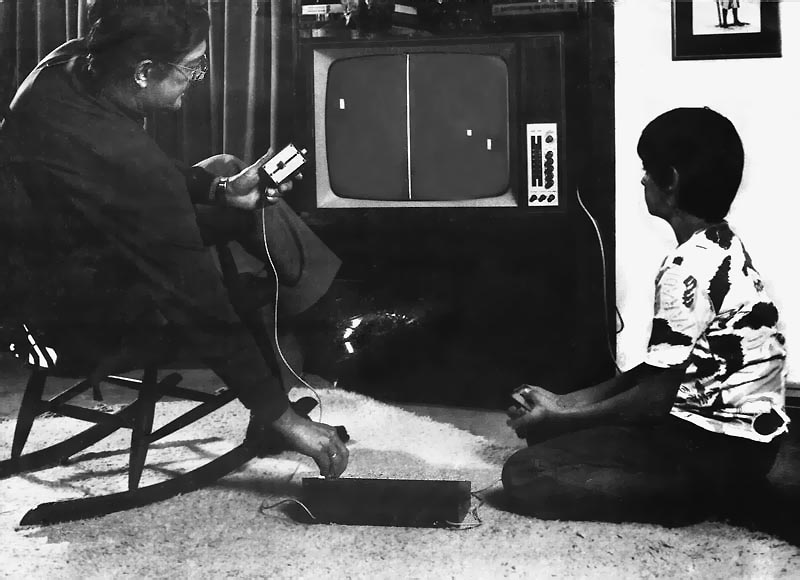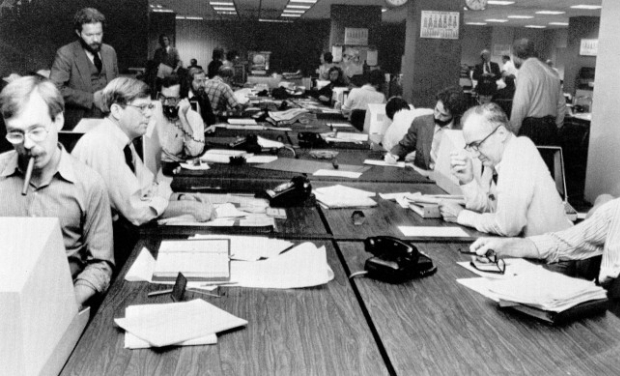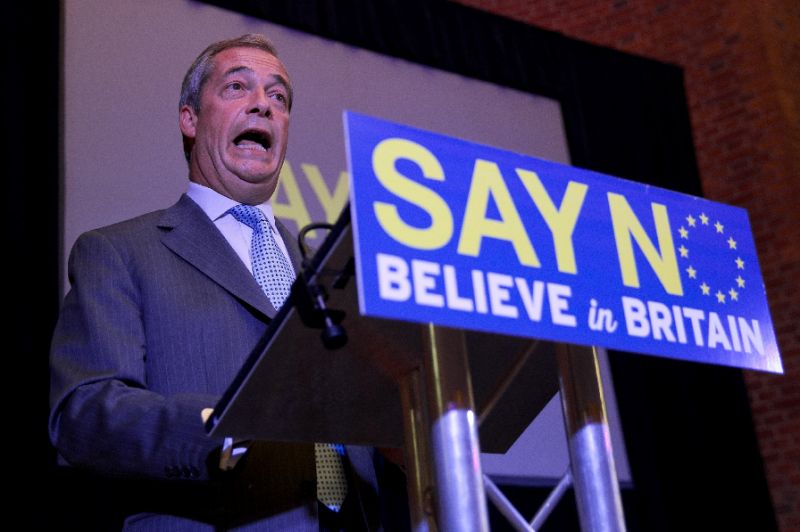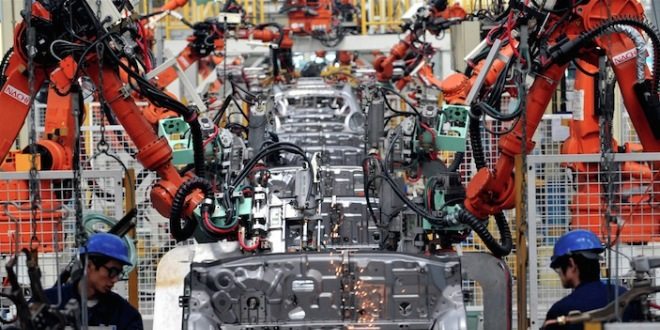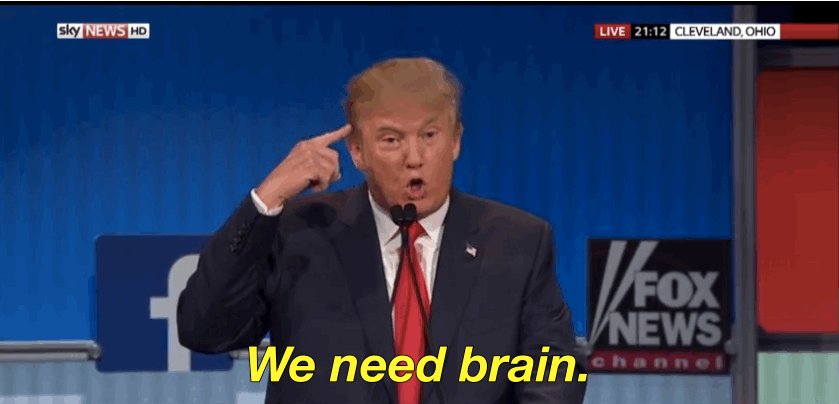Edward Snowden, that mixed blessing, isn’t Joseph K., as he wasn’t traduced, but there is something Kafkaesque about his shape-shifting transition into a virtual citizen, a ghost in the machine, a BeamPro boulevardier who rolls around art museums and TED gatherings.
The former NSA contract employee is now a disembodied voice of the people–some of them–who’s found a workaround for a cancelled passport: He’s sort of become a robot. It’s no small irony that the one who struck back against the unholy marriage of Cold War politics and Digital Age tools now finds himself inside Putin’s oppressive Soviet throwback when at home and a piece of cutting-edge technology when he goes out. Despite the awareness he fostered with his Paul Revere-ish leaks–“The Machines are coming!“–it seems like we’re all headed for at least the latter part of that equation.
In Andrew Rice’s excellent New York article about his encounters with the world’s most-wanted leaker, or at least his telepresence, the writer acknowledges the strangest thing about of the whole disembodied setup is how easy it is to forget that the Snowden he meets is a robot. An excerpt:
Over the past few months, we have encountered one another with some regularity, and while I can’t claim to know him as a flesh-and-blood person, I’ve seen his intellect in its native habitat. He is at once exhaustively loquacious and reflexively self-protective, prone to hide behind smooth oratory. But occasionally, he has let down his guard and talked like a human being. “I’m able to actually have influence on the issues that I care about, the same influence I didn’t have when I was sitting at the NSA,” Snowden told me. He claims that many of his former colleagues would agree that the programs he exposed were wrongfully intrusive. “But they have no voice, they have no clout,” he said. “One of the weirder things that’s come out of this is the fact that I can actually occupy that role.” Even as the White House and the intelligence chiefs brand him a criminal, he says, they are constantly forced to contend with his opinions. “They’re saying they still don’t like me — tut-tut, very bad — but they recognize that it was the right decision, that the public should have known about this.”
Needless to say, it is initially disorienting to hear messages of usurpation emitted, with a touch of Daft Punk–ish reverb, from a $14,000 piece of electronic equipment. Upon meeting the Snowbot, people tend to become flustered — there he is, that face you know, looking at you. That feeling, familiar to anyone who’s spotted a celebrity in a coffee shop, is all the more strange when the celebrity is supposed to be banished to the other end of the Earth. And yet he is here, occupying the same physical space. The technology of “telepresence” feels different from talking to a computer screen; somehow, the fact that Snowden is standing in front of you, looking straight into your eyes, renders the experience less like enhanced telephoning and more like primitive teleporting. Snowden sometimes tries to put people at ease by joking about his limitations, saying humans have nothing to fear from robots so long as we have stairs and Wi-Fi dead zones in elevators. Still, he is quite good at maneuvering on level ground, controlling the robot’s movements with his keyboard like a gamer playing Minecraft. The eye contact, however, is an illusion—Snowden has learned to look straight into his computer’s camera instead of focusing on the faces on his screen.
Here’s the really odd thing, though: After a while, you stop noticing that he is a robot, just as you have learned to forget that the disembodied voice at your ear is a phone. Snowden sees this all the time, whether he is talking to audiences in auditoriums or holding meetings via videoconference. “There’s always that initial friction, that moment where everybody’s like, ‘Wow, this is crazy,’ but then it melts away,” Snowden told me, and after that, “regardless of the fact that the FBI has a field office in New York, I can be hanging out in New York museums.” The technology feels irresistible, inevitable. He’s the first robot I ever met; I doubt he’ll be the last.•

